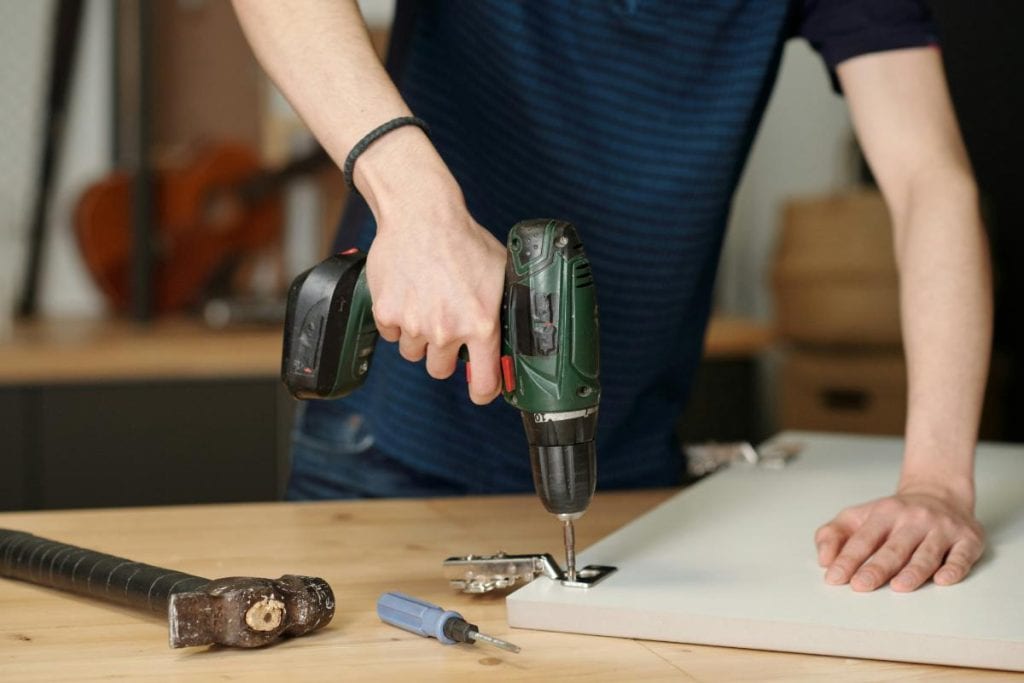As a South Florida homeowner, you face unique challenges when it comes to home renovations. The hot, humid climate can be tough on materials and disrupt your timeline. And let’s not forget about the unpredictable weather that can throw a wrench in your plans.
But don’t worry, this guide provides practical tips to ensure your renovation project is as stress-free as possible. With a little preparation and some insider know-how, you can avoid common pitfalls and enjoy the process of transforming your home.

1. Plan Well Beforehand
Before you pick up a hammer or call a contractor, take the time to outline your renovation goals clearly. What do you want to achieve with this makeover? Are you looking to increase your home’s value, improve functionality, or simply refresh its appearance?
Once you have your goals in place, create a detailed budget. This should include the costs of materials and labor as well as a buffer for unexpected expenses. It’s easy to get caught up in the excitement of new fixtures and finishes, but sticking to your budget will save you from financial stress down the line.
Next, create a realistic timeline. Consider any upcoming events or seasons that might impact your project. In South Florida, for instance, you might want to avoid major renovations during hurricane season. Detailed planning at this stage sets the foundation for a smooth renovation process.
2. Move Stuff into a Storage Unit
Clutter is your renovation’s worst nightmare. It cramps up your workspace, creates safety hazards, and puts your belongings at risk. Want to keep your reno site organized and efficient? Consider moving your stuff into a storage unit.
Working with a moving company in South Florida can make this process seamless. Professional movers will ensure your belongings are safely packed and transported to the storage unit. This protects your items and gives contractors the space they need to work efficiently. A clear, clutter-free environment is key for a smooth renovation process.
3. Hire Reliable and Experienced Contractors
The success of your renovation largely depends on the skills and reliability of the contractors you hire. Take the time to research and select experienced professionals with a proven track record. Start by asking for recommendations from friends, family, or neighbors who have recently completed similar projects.
Once you have a list of potential contractors, check their reviews and ratings online. Look for contractors who are licensed, insured, and have positive feedback from previous clients. Don’t hesitate to ask for references and contact them to get a sense of the contractor’s work ethic and quality.
During the hiring process, make sure to communicate your goals, budget, and timeline clearly. A good contractor will be transparent about potential challenges and work with you to develop realistic solutions.
4. Obtain All Necessary Permits Before Beginning Work
Permits are an often-overlooked aspect of home renovations, but they’re essential for making sure your project complies with local building codes and regulations. Failing to obtain the necessary permits can result in fines, delays, and even legal issues.
Before starting any work, check with your local building department to determine which permits are required for your specific project. Common permits might include those for electrical, plumbing, or structural changes. While this may seem tedious, it’s important for a legally compliant renovation.
Hiring a contractor familiar with South Florida regulations can simplify this process. They can help you navigate the permit application process and ensure all work meets the required standards. Remember, investing time in securing permits upfront can save you from costly headaches down the line.
5. Create a Temporary Living Plan During Renovation
Renovations can significantly disrupt daily life, especially when they involve critical areas like the kitchen or bathrooms. To minimize stress and maintain a semblance of normalcy, it’s essential to have a temporary living plan. Depending on the extent of your renovation, you might consider staying with friends or family, renting a short-term apartment, or even booking a long-term stay at a hotel.
When creating your plan, think about your needs and comfort. For example, if you work from home, make sure your temporary living situation has a suitable workspace. Additionally, keep essentials like clothes, toiletries, and important documents easily accessible. A well-thought-out temporary living plan can make the renovation period more bearable and less disruptive.
6. Focus on One Room at a Time to Stay Organized
Attempting to renovate multiple rooms simultaneously can be overwhelming and chaotic. To maintain order and sanity, focus on one room at a time. This approach allows you to dedicate your full attention and resources to each space, ensuring high-quality results.
Start by prioritizing the rooms that need the most work or will provide the most significant impact on your daily life. For example, you might tackle the kitchen or bathrooms first, as these are essential for everyday activities. Once a room is completed, you can move on to the next with a clear mind and a sense of accomplishment.
Focusing on one room at a time also makes it easier to manage your budget and timeline. You can address any issues that arise in a single room without affecting the entire project. This methodical approach helps keep the renovation process manageable and less stressful.

7. Prioritize Essential Upgrades That Add Value
When planning your renovation, it’s important to prioritize essential upgrades that will add value to your home. While it might be tempting to focus on aesthetic changes, functional improvements often provide a better return on investment.
Consider upgrades that enhance the home’s structure, energy efficiency, and overall functionality. For instance, updating plumbing or electrical systems, replacing old windows with energy-efficient ones, or installing a new HVAC system can significantly improve your home’s value and comfort.
Additionally, focus on high-traffic areas like the kitchen and bathrooms. These rooms often yield the highest return on investment when renovated. Prioritizing essential upgrades ensures that your renovation not only looks great but also provides long-term benefits.
Beginning a home renovation in South Florida doesn’t have to be a stressful experience. By following these practical tips, you can simplify the process and enjoy the transformation of your home. Thorough planning, clear communication, and focusing on essential upgrades are key to a successful renovation. Remember to move items into storage to keep the workspace clear, create a temporary living plan to maintain normalcy, and tackle one room at a time to stay organized. Regular check-ins with your team will help you stay on track and address any issues promptly. With these strategies, you’ll be well on your way to a smooth and successful home makeover, turning your renovation dreams into reality without unnecessary stress.
